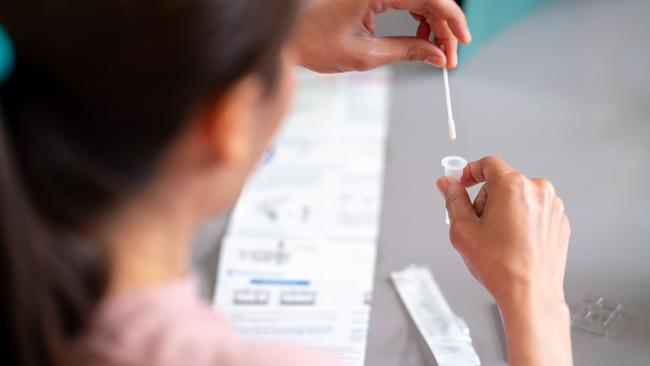Scientists eye noses as Covid resisters
The mystery of why Covid-19 left some victims in intensive care and others with no symptoms could have something to do with their noses.

The mystery of why Covid-19 left some victims in intensive care and others with no symptoms at all is a step closer to being solved – and the answer could have something to do with their noses.
Scientists at British institutions have uncovered a process through which people can defeat the virus before infection can take hold.
They say their study, led by Imperial College London, could lead to new treatments for diseases and to vaccines that copy the body’s immune response.
The researchers exposed the virus to 36 healthy volunteers who had never tested positive for the coronavirus to understand how their immune systems responded. They monitored the lining of their noses as well as their immune response.
Some rapidly cleared the virus and showed increased activity in mucosal immune cells without evidence of a widespread immune response. This suggests that they managed to beat the virus before it had a chance to enter their system.
Rik Lindeboom, joint first author of the study, now at The Netherlands Cancer Institute, said: “This was an incredibly unique opportunity to see what immune responses look like when encountering a new pathogen – in adults with no prior history of Covid-19, in a setting where factors such as time of infection and co-morbidities could be controlled.”
Some of those who did not develop Covid-19 symptoms showed increased activity from a gene called HLA-DQA2. The scientists believe this helped them to fight infection.
Six of the participants later developed full-blown Covid-19 and these volunteers were found to have had a slower immune response in the nose, which scientists believe allowed the virus to establish itself there.
The team of researchers from Imperial College London, The Netherlands Cancer Institute and the Wellcome Sanger Institute used single-cell sequencing to study the immune responses.
Their research was published in the journal Nature as part of the Human Cell Atlas project, which aims to map every type of cell in the body.
Marko Nikolic, senior author of the study and honorary consultant in respiratory medicine at UCL, said: “These findings shed new light on the crucial early events that either allow the virus to take hold or rapidly clear it before symptoms develop.
“We now have a much greater understanding of the full range of immune responses, which could provide a basis for developing potential treatments and vaccines that mimic these natural protective responses.”
Sarah Teichmann, senior author of the study and co-founder of the Human Cell Atlas, formerly at the Wellcome Sanger Institute and now based at Cambridge University, said: “As we’re building the Human Cell Atlas, we can better identify which of our cells are critical for fighting infections and understand why different people respond to coronavirus in varied ways.
“Future studies can compare with our reference dataset to understand how a normal immune response to a new pathogen compares to a vaccine-induced immune response.”
In May, researchers from the universities of Oxford and Cambridge developed a vaccine technology shown to protect against a range of coronaviruses.
The Times







To join the conversation, please log in. Don't have an account? Register
Join the conversation, you are commenting as Logout